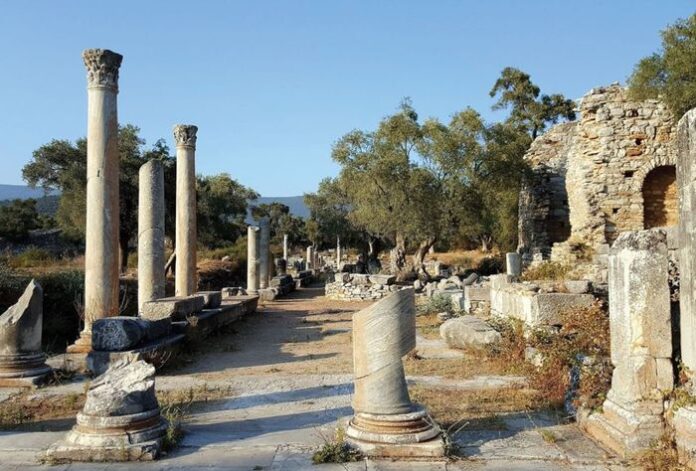Two days after the ransom was paid, Miss Ellen Stone received a letter from Dr. House. The letter was delivered by the brigands while she was still held in a mountain cabin. The letter brought her wonderful news: the ransom had been paid. Her captors then told her that she would be released soon—once they felt it was safe for them to escape.
A Difficult Journey to Freedom
After waiting for several more days, Miss Stone, Mrs. Tsilka, and her baby were finally taken on a journey by the brigands. The group traveled through the mountains for two nights and most of three days. Finally, around sunset on February 23, the brigands stopped in a wooded area. They told Miss Stone and Mrs. Tsilka that they were now free to go. The women were informed that there was a village just five minutes away Secrecy Demanded by the Brigands.
Miss Stone and Mrs. Tsilka expressed their relief and gratitude to their captors, despite the hardship they had faced. Soon after, they reached the village of Gradshortsky. The local people welcomed them warmly and quickly informed the governor of the nearby town of Strumitsa.
Reunion and Return to Safety
The next morning, Miss Stone and Mrs. Tsilka were brought to Strumitsa. The governor of the town received them with a formal welcome. He then sent word to the missionaries who had been anxiously awaiting news of their release.
Dr. House, Mr. Peet, and Mr. Gargiulo soon arrived and reunited with the women. They brought them to the city of Salonika, where Dr. House lived. After resting there for a few days, the group continued their journey to Constantinople.
Debate Over the Ransom Payment
Although the rescue was successful, not everyone agreed about how it was handled. Some people in the European community and among the missionaries had different opinions about the decision to pay the ransom Sofia Daily Tour.
Most supported the actions of the American minister and his committee. They believed that paying the ransom was the right choice to save lives. However, a small group of missionaries felt strongly that it would have been better to refuse payment—even if it meant Miss Stone might die. They argued that agreeing to the brigands’ demands was morally wrong and dangerous.
Concerns About the Future
Some critics feared that paying the ransom set a dangerous example. They worried that now kidnappers might see American missionaries as easy targets. The fear was that the United States, by paying such a large sum, showed weakness and would be asked to pay again in future cases. These critics claimed that the decision was not only bad policy but also a shameful act that hurt the reputation of a strong Christian nation.
Despite the controversy, Miss Stone and Mrs. Tsilka returned safely, thanks to careful planning and cooperation. The debate about the moral and political consequences of the ransom continued, but the rescue itself was a relief to many people who had feared the worst.








